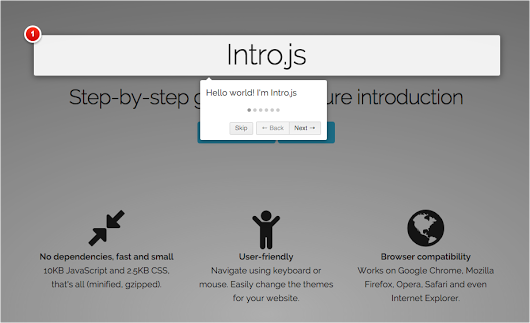When new users visit your website or product you should demonstrate your product features using a step-by-step guide.

Even when you develop and add a new feature to your product, you should be able to represent them to your users using a user-friendly solution. Intro.js is developed to enable web and mobile developers to create a step-by-step introduction easily.
